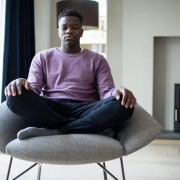Understanding the Benefits of Trauma Counselling
Trauma counselling plays a crucial role in helping individuals heal from distressing experiences that have significantly impacted their mental and emotional well-being. Trauma can arise from various sources such as accidents, abuse, early childhood trauma, neglect, natural disasters, or witnessing a traumatic event. Regardless of its origin, the lingering effects of trauma can severely disrupt a person’s daily life. Here’s an in-depth look at how trauma counselling can facilitate recovery and foster resilience.

What is Trauma Counselling?
Trauma counselling is a specialised form of therapy designed to help individuals process and recover from traumatic experiences. It involves creating a safe, supportive environment where clients can explore their feelings, thoughts, and memories related to the trauma. Therapists use various techniques tailored to the individual’s needs, such as eye movement desensitisation and reprocessing (EMDR), somatic experiencing and The Richards Trauma Process (TRTPTherapy).
Key Benefits of Trauma Counselling
Emotional Healing:
Trauma often leaves deep emotional scars, leading to conditions like anxiety, depression, and PTSD. Trauma counselling helps individuals process these emotions, enabling them to understand and manage their feelings better. Over time, this emotional processing can lead to significant relief from distressing symptoms.
Improved Relationships:
Trauma can strain relationships with family, friends, and partners. Counselling helps individuals rebuild trust and improve communication, fostering healthier and more supportive relationships. It also provides tools to help them articulate their needs and boundaries effectively.
Enhanced Coping Mechanisms:
Trauma survivors often develop maladaptive coping strategies to deal with their pain. Counselling introduces healthier coping mechanisms, such as mindfulness, relaxation techniques, and problem-solving skills. These new strategies help individuals handle stress more effectively and reduce reliance on harmful behaviours.
Reduction in Symptoms of PTSD:
Post-Traumatic Stress Disorder (PTSD) can cause flashbacks, nightmares, and severe anxiety. Trauma counselling specifically addresses these symptoms, helping clients process the traumatic event and reduce the intensity and frequency of PTSD episodes.
Increased Self-Esteem and Empowerment:
Trauma can significantly impact a person’s self-worth and sense of control. Counselling helps individuals reclaim their sense of self and empowers them to take charge of their healing journey. By understanding and overcoming their trauma, clients often experience a boost in self-esteem and confidence.
Prevention of Future Mental Health Issues:
Addressing trauma early can prevent the development of further mental health issues. By working through trauma with a professional, individuals can avoid long-term complications such as chronic depression, anxiety disorders, and substance abuse.
Trauma counselling is a powerful tool for healing and recovery. By addressing the deep-seated effects of traumatic experiences, individuals can regain control over their lives and build a brighter, healthier future. If you or someone you know is struggling with the aftermath of trauma, seeking the support of a qualified trauma counsellor can be a transformative step towards recovery and well-being.
For more information contact northernriverscounselling.net.au to discuss how we can help you process and resolve your trauma.











